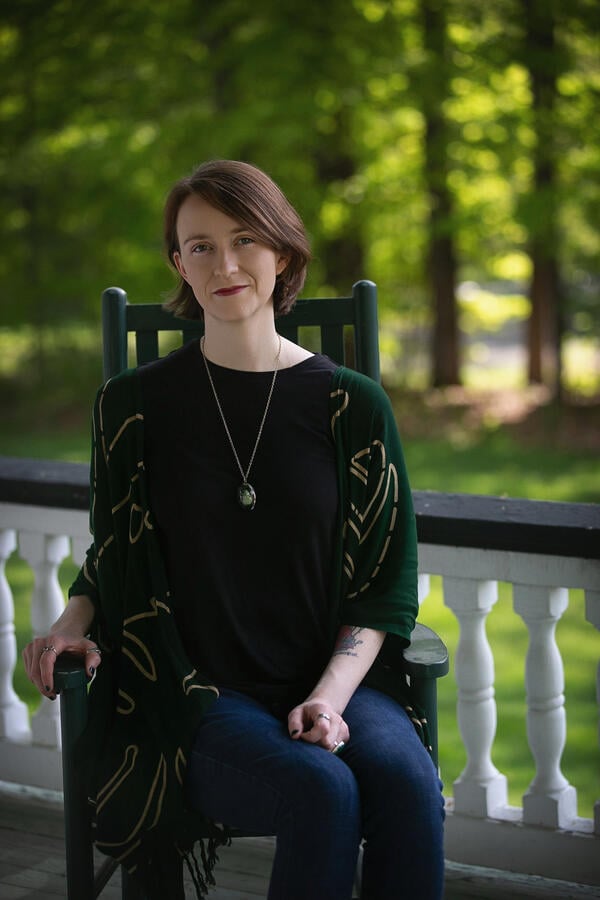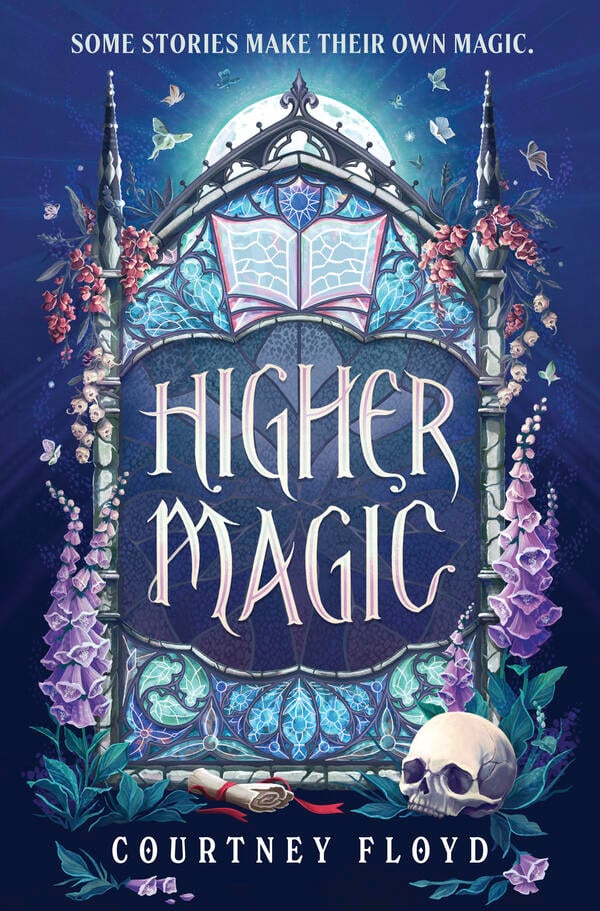You have /5 articles left.
Sign up for a free account or log in.
Courtney Floyd’s debut novel, Higher Magic, will be published on Oct. 7, 2025. As a fan of any book that combines magic and academia, I’ll be eagerly awaiting its publication. The fact that Courtney and I are colleagues at Dartmouth, where she has been a learning designer since 2020, makes the launch of her novel even more exciting. I asked Courtney if she would answer my questions about herself, her novel and her career, and she graciously agreed.

Q: Tell us about your educational and career path that brought you to today, where you are both a learning designer and a novelist. What are some of the main projects you work on in your role as a learning designer, and what other creative projects are you involved in beyond the writing of Higher Magic?
A: I came to this work in a roundabout way. I’m trained as a literature scholar, and I taught all through grad school. About two-thirds of the way through my Ph.D. program, though, I had a real moment of reckoning. The tenure track can be all-consuming, and while I’m passionate about the power of education, I had always wanted to pursue creative writing as well. Because I was an incredibly techy English major and instructor, as well as a pedagogy nerd, my adviser encouraged me to explore other career paths. I’m so grateful that she did.
One of the things that really drew me to learning design is its emphasis on creative collaboration. At Dartmouth, I’m involved in a wide range of projects that let me combine multimodal storytelling techniques with pedagogical approaches and evidence-based practices to create learning and professional development experiences that are deeply meaningful and empowering. One of the projects I’m proudest of is the Accessible Dartmouth Initiative, as part of which I collaborate on a range of programming and resources to support the integration of universal design for learning into the curriculum. We recently launched a free digital workbook called Practicing UDL in Higher Education, which includes a collection of case studies that showcase UDL in action at Dartmouth.
I can’t say much about my current creative projects, though there are several in the works! However, I have several podcasts that are available on all major podcast platforms, and I completed production on a three-season audio drama titled The Way We Haunt Now last year.
Q: Let’s talk about the book. What can you tell us about the story and what inspired you to create that world? Who are the readers you think will most enjoy reading Higher Magic? And what are some of the novels that future readers of your book might also enjoy?
A: Higher Magic is a story about academic belonging and identity wrapped in a magical mystery. It follows Dorothe Bartleby, a first-gen graduate student with intense anxiety who has one last chance to pass her program’s qualifying exam after freezing up during her first attempt. If she can’t demonstrate that magic in classic literature changed the world, she’ll be kicked out of the university. But Bartleby’s revised spellwork demonstration goes horribly awry, and her attempts to fix it lead her to the discovery that her students are literally disappearing. Ultimately, she must learn to trust her own knowledge and skills or risk losing both the missing students and her future as a mage.
The novel draws on both my personal experience navigating grad school with undiagnosed neurodivergence and my love of early novels and long 19th-century literature. I wanted to explore the way higher education opens up possibilities for marginalized students but often requires them to navigate an obstacle course of systemic barriers along the way. (Something many of us working in higher ed are immensely aware of and working proactively to address!) I also wanted to celebrate the people and communities that help us make it through that obstacle course.
While I like to think Higher Magic has broad appeal, it’s my anthem to late-diagnosed and self-identified neurodivergent academics, the disability community in higher ed and the educators, students and staff fighting to rewrite old narratives about who belongs in academia, and whose knowledge matters.
Despite the serious topic, there is lots of fun and lightheartedness along the way—including magic digital humanities projects, lots of playful meta-narrative, a Jane Austen–quoting skull, plot-relevant spreadsheets and kombucha magic. (My publishing team would be extremely disappointed if I didn’t mention that it’s available for preorder now.)
If I were to put it on a syllabus, I’d include: R. F. Kuang’s Babel, Heather Fawcett’s Emily Wilde’s Encyclopaedia of Fairies, Silvia Moreno-Garcia’s The Bewitching, Charlie Jane Anders’s Lessons in Magic and Disaster, Sylvie Cathrall’s A Letter to the Luminous Deep, H. G. Parry’s The Unlikely Escape of Uriah Heep and A. S. Byatt’s Possession.
Q: After doing everything it takes to write and publish a novel while working full-time as a highly productive and enormously talented and valued learning designer, what advice do you have for others in higher education who might want to follow in your footsteps? How do you integrate these identities as an author, podcaster and learning designer—and what are some of the lessons you might want to share about how creative and professional work can be integrated?
A: I hinted at this above, but I view these identities as deeply interwoven parts of a whole. I’m a better learning designer because of my creative work. Submitting and revising fiction makes me more enthusiastic about iteration and more resilient in the face of setbacks and failures. The reverse is also true. Designing programs and courses gives me the confidence to design story worlds and plots. And, while I don’t draw directly on my learning design projects in my creative projects, the secondary lessons I learn—about how people can work together to make change, for example—shape my approach to story problems.

I’ll be frank, though: Juggling all of this can be a lot. I’m lucky in that I have the flexibility to work from home, which means commuting hours can be writing hours instead. But even so, I have to be very mindful of energy and capacity. Burnout is real and it’s scary.
My main piece of advice is that productivity isn’t the point; it’s the byproduct. Start small, build in lots of time to refill the well and take as long as you need. Art doesn’t have an expiration date. And, for my fellow perfectionists: Don’t be afraid to make the mess that makes the story. As we say in the fiction world, you can’t edit a blank page.




